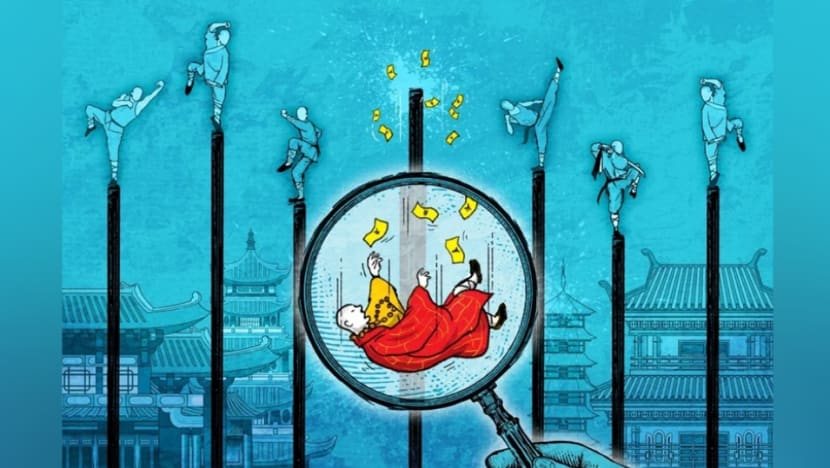World
Shaolin Temple Faces Major Changes Amid Abbot’s Scandal

The renowned Shaolin Temple in Henan province, a historic site linked to kung fu and Zen Buddhism, is undergoing significant changes following the scandal surrounding its long-time abbot, Shi Yongxin. Currently facing investigation for alleged financial misconduct and sexual improprieties, Shi’s situation has raised questions about the future governance of temples across China.
On July 27, 2023, the temple’s management committee announced that Shi was under investigation for misappropriating project funds and temple assets, as well as violating Buddhist principles by maintaining improper relationships. This revelation has led to his removal from leadership and the appointment of a new abbot, Shi Yinle, who is expected to bring a more restrained approach to the temple’s commercialization.
While tourists continue to flock to the temple in Dengfeng, many have noted a shift in the atmosphere. The rapid removal of Shi’s presence from the temple complex, along with a reduction in aggressive commercial practices, is palpable. Under Shi’s leadership, the temple had evolved into a multibillion-dollar brand, often referred to as the “CEO monk” for his business acumen. His tenure saw the expansion of the Shaolin brand into various sectors, including tourism, merchandise, and media production.
Despite the ongoing investigation, visitors still engage in traditional practices such as lighting incense and watching kung fu performances. However, local sentiment reflects a decrease in foot traffic, particularly during the peak summer tourism season. One local martial arts teacher expressed skepticism about the impact of Shi’s departure, suggesting that the economic benefits generated by the temple would likely remain intact regardless of the scandal.
As the investigation unfolds, the implications for Shaolin Temple could extend far beyond its walls. The situation may prompt the Chinese government to reconsider how religious institutions are operated and regulated. Meng Liang, chair of the Mencius Foundation, indicated that reforms could include stricter oversight and restrictions on commercial activities to ensure temples maintain their non-profit nature.
The temple economy surrounding Shaolin, estimated to be worth between 80 billion to 90 billion yuan (approximately USD 11.1 billion to USD 12.5 billion) in 2023, has flourished alongside growing public interest in spirituality. A record 25 million people visited major temples like Shaolin and Lingyin Temple in Hangzhou this year, generating significant revenue. Yet, debates around the commercialization of sacred spaces have persisted, with some advocating for a return to purely spiritual practices.
The scandal involving Shi is not an isolated incident. It follows a pattern of scrutiny facing religious leaders in China, particularly as commercial interests intertwine with spiritual practices. In 2018, Shi Xuecheng, then head of the Buddhist Association, faced similar allegations and was stripped of his titles after being found guilty of sexual harassment, a high-profile case that resonated with the broader #MeToo movement in China.
The new abbot, Shi Yinle, who previously served at the White Horse Temple, is viewed as a potential catalyst for change. His leadership style emphasizes a balance between religious practice and community involvement, suggesting a possible shift back towards a less commercialized environment.
Local opinions on Shi Yongxin’s legacy are mixed. Some residents credit him with transforming Shaolin into a global brand that has brought economic growth to Dengfeng. Others are wary, feeling that the commercialization under his leadership overshadowed the temple’s spiritual mission.
As the Shaolin Temple navigates this pivotal moment, the outcome of Shi’s investigation may not only redefine the temple’s future but also signal broader changes in how religious institutions operate in China.
The combination of spirituality and commerce continues to evolve, reflecting changing societal values and the complexities of managing cultural heritage in a modern context.
-

 Business5 months ago
Business5 months agoKenvue Dismisses CEO Thibaut Mongon as Strategic Review Advances
-

 Lifestyle4 months ago
Lifestyle4 months agoHumanism Camp Engages 250 Youths in Summer Fest 2025
-

 Sports4 months ago
Sports4 months agoDe Minaur Triumphs at Washington Open After Thrilling Comeback
-

 Sports5 months ago
Sports5 months agoTupou and Daugunu Join First Nations Squad for Lions Clash
-

 Top Stories5 months ago
Top Stories5 months agoColombian Senator Miguel Uribe Shows Signs of Recovery After Attack
-

 World5 months ago
World5 months agoASEAN Gears Up for Historic Joint Meeting of Foreign and Economic Ministers
-

 Health4 months ago
Health4 months agoNew Study Challenges Assumptions About Aging and Inflammation
-

 Business5 months ago
Business5 months agoOil Prices Surge Following New EU Sanctions on Russia
-

 Entertainment4 months ago
Entertainment4 months agoDetaşe-Sabah Violin Ensemble Captivates at Gabala Music Festival
-

 Entertainment4 months ago
Entertainment4 months agoBaku Metro Extends Hours for Justin Timberlake Concert
-

 Top Stories5 months ago
Top Stories5 months agoRethinking Singapore’s F&B Regulations Amid Business Closures
-

 Business5 months ago
Business5 months agoU.S. House Approves Stablecoin Bill, Sends to Trump for Signature









